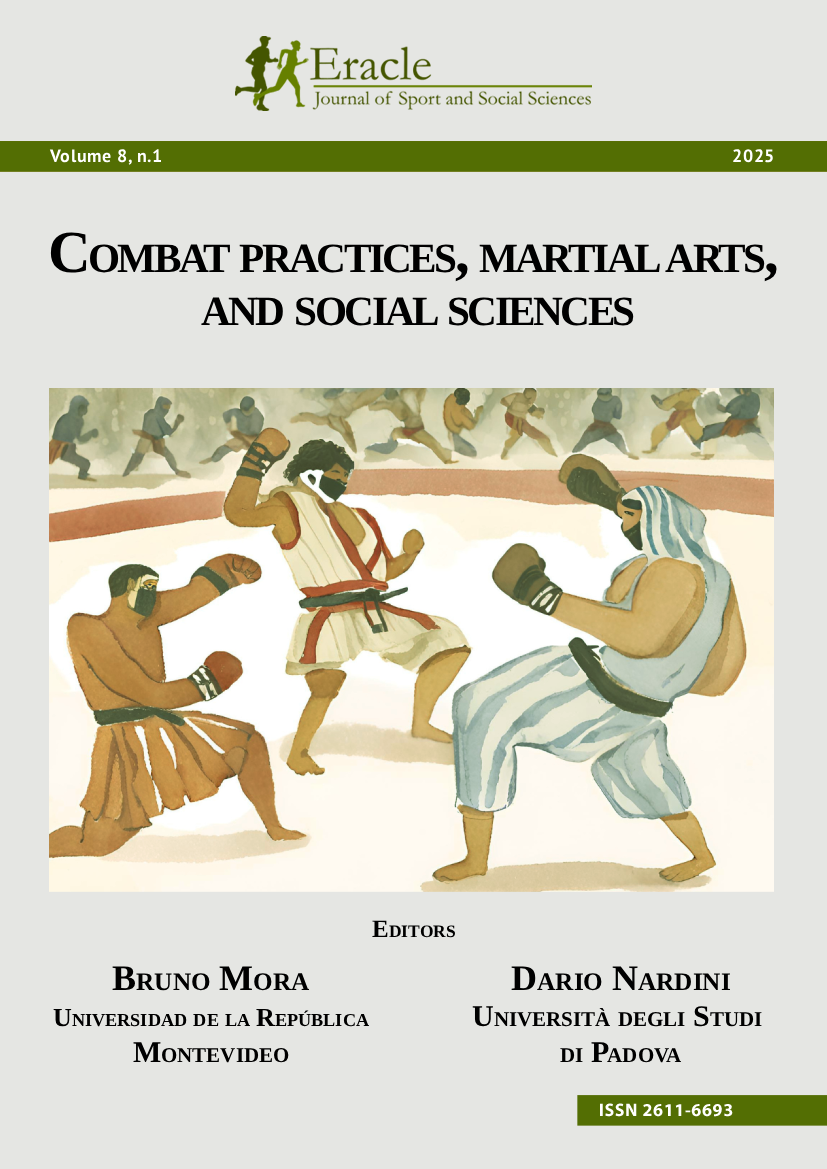“A boy is always going to be superior to a girl” – The ideal of fighting like a man or accepting inferiority for women karateka
DOI:
https://doi.org/10.6093/2611-6693/12873Abstract
In a gender binary environment such as karate, oriented by a traditional martial pedagogy (Cynarsky et al., 2012), the way women express themselves is often seen as disconcerting and irrational. For many men, women are far from achieving the ideal of a fighter, what is around a high-performance male model, not attainable even by most non-alpha men. The idea of one-size-fits-all turns into one-size-fits-men. Often, karateka women seek to model themselves on men in order to conquer a space in the challenging environment (Turelli et al., 2022a). However, the way they express themselves has differences in relation to the way men do it, given the gendered social embodiment (Mason, 2018; Young, 1980). There are in place bodies’ expressions and beliefs, leading to the subject of women’s masculinization, in addition to internal martial differentiations in positions occupied by kata and kumite athletes. In this paper, we will explore these ideas seeking ways to disrupt the hegemonic masculine domination experienced. We researched the Spanish women’s karate team in preparation to the Tokyo 2020 (2021) Olympic Games. Athletes interviewed offered narratives of uncomfortable situations they identified related to power and machismo, helping to provide insight for possibilities of subversion.



